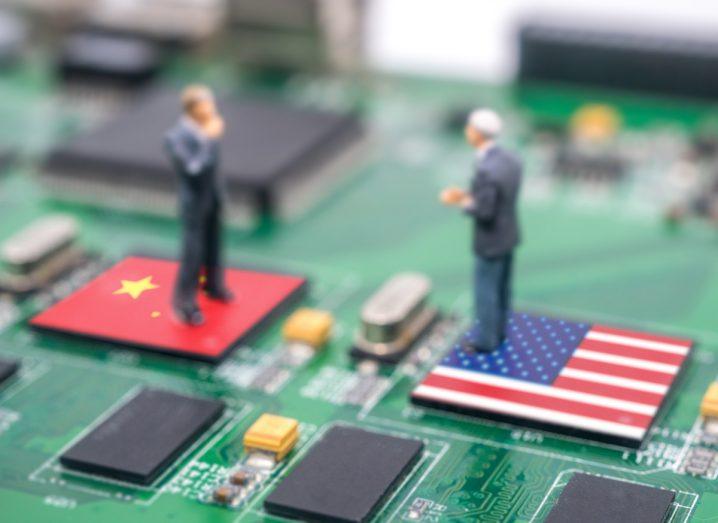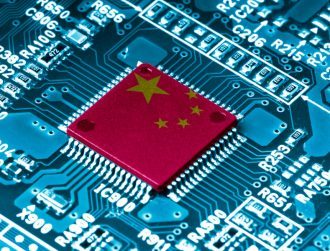
Image: © hakule/Stock.adobe.com
The US is expected to impose a fresh round of chip sanctions on China since its sweeping measures last October.
Things have escalated significantly since the US imposed export restrictions on chip and related technologies from US-based companies to China late last year. Others have also been dragged into this conflict-turned-trade-war, and the Netherlands now finds itself at the centre of it.
Just today, the Dutch government published new export controls to restrict more technologies from Veldhoven-based ASML, the world’s largest supplier of parts for the chip industry that specialises in lithography. The reason? To stop China from making advanced chips needed for AI.
The US and allies across the pond believe China is importing advanced chip technologies from the West crucial to the development of artificial intelligence that it will deploy in its military, for weapons development and to enhance its hacking capabilities.
Japan, home to big chipmakers such as Nikon and Tokyo Electron, has also restricted exports of two dozen types of semiconductor manufacturing equipment to China. The ban is set to take effect in July.
Unsurprisingly, China is not happy with the blanket chip ban largely spearheaded by the US.
Liu Pengyu, a spokesperson for the Chinese embassy in Washington DC, told Reuters in the aftermath of the sweeping sanctions last October that the US has “deliberately blockaded and hobbled” Chinese companies and “forcibly relocated industries and pushed for decoupling”.
‘Permanent loss of opportunities’
But the US and its allies are unwavering in their attempt to curb China’s access to crucial technologies the US believes will harm its national security interests. Sources told Reuters that more updates to the October chip ban measures are expected next month.
The US is also planning to prohibit chip giants such as AMD and Nvidia – which has seen its chip demand soar amid the AI race – from making shipments to China as early as next month, according to a Wall Street Journal report earlier this week.
However, Nvidia warned that if the US imposes new restrictions over and above the ones already in place, it would result in a “permanent loss of opportunities” for US industry.
The company’s chief financial officer, Colette Kress, said she didn’t anticipate any “immediate material impact” but tighter curbs would impact earnings in the future.
“We are aware of reports that the US Department of Commerce is considering further controls that may restrict exports of our A800 and H800 products to China,” Kress told an investment conference this week.
“Restrictions prohibiting the sale of our data centre GPUs to China, if implemented, would result in a permanent loss of opportunities for US industry to compete and lead in one of the world’s largest markets and impact on our future business and financial results.”
According to a Bloomberg report, the new restrictions are aimed in part at Nvidia’s A800 chip, which the US-based company created following the introduction of last year’s curbs in order to continue to sell to China.
10 things you need to know direct to your inbox every weekday. Sign up for the Daily Brief, Silicon Republic’s digest of essential sci-tech news.





